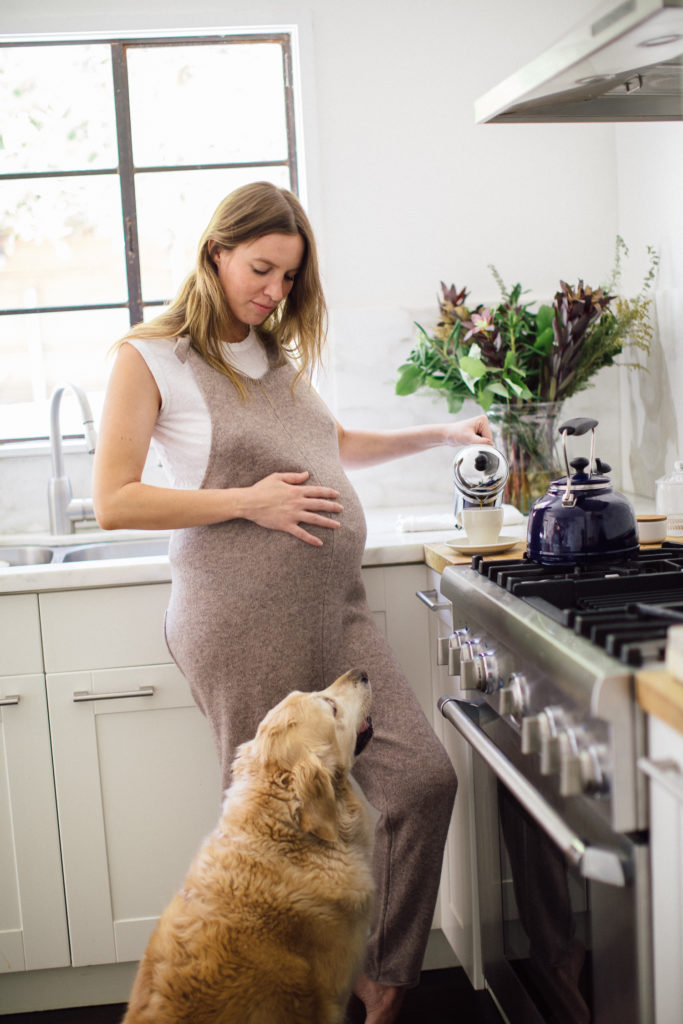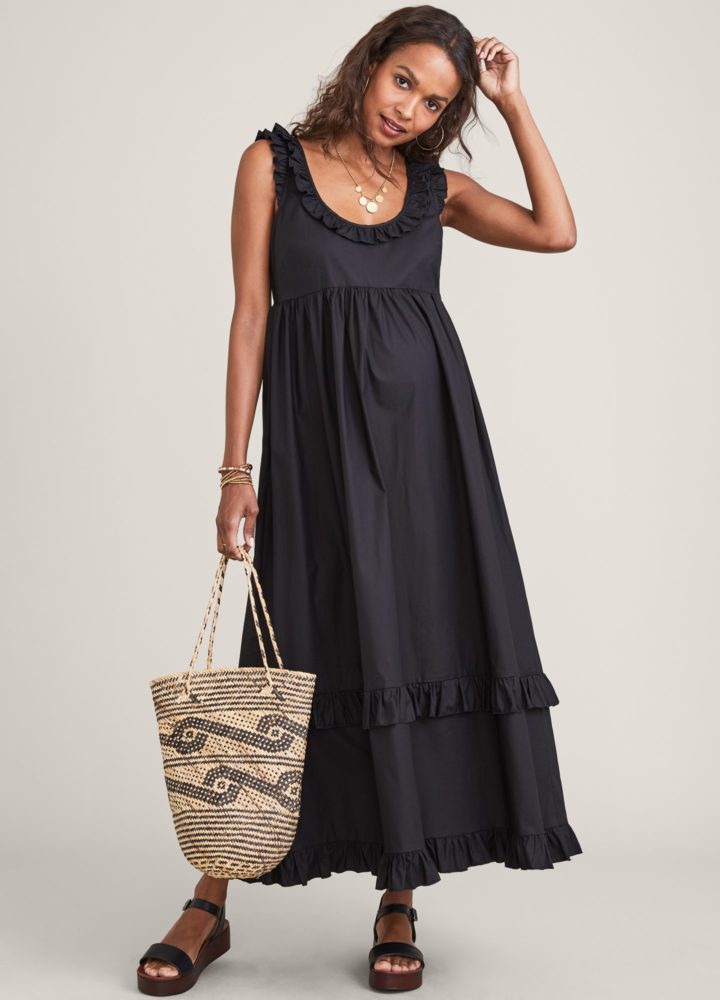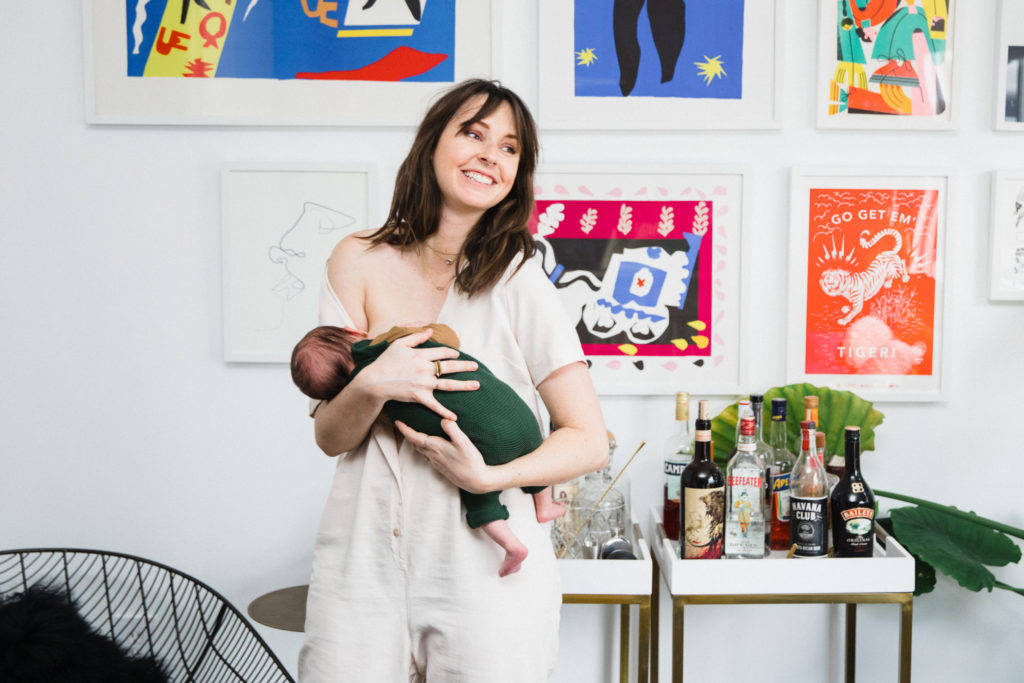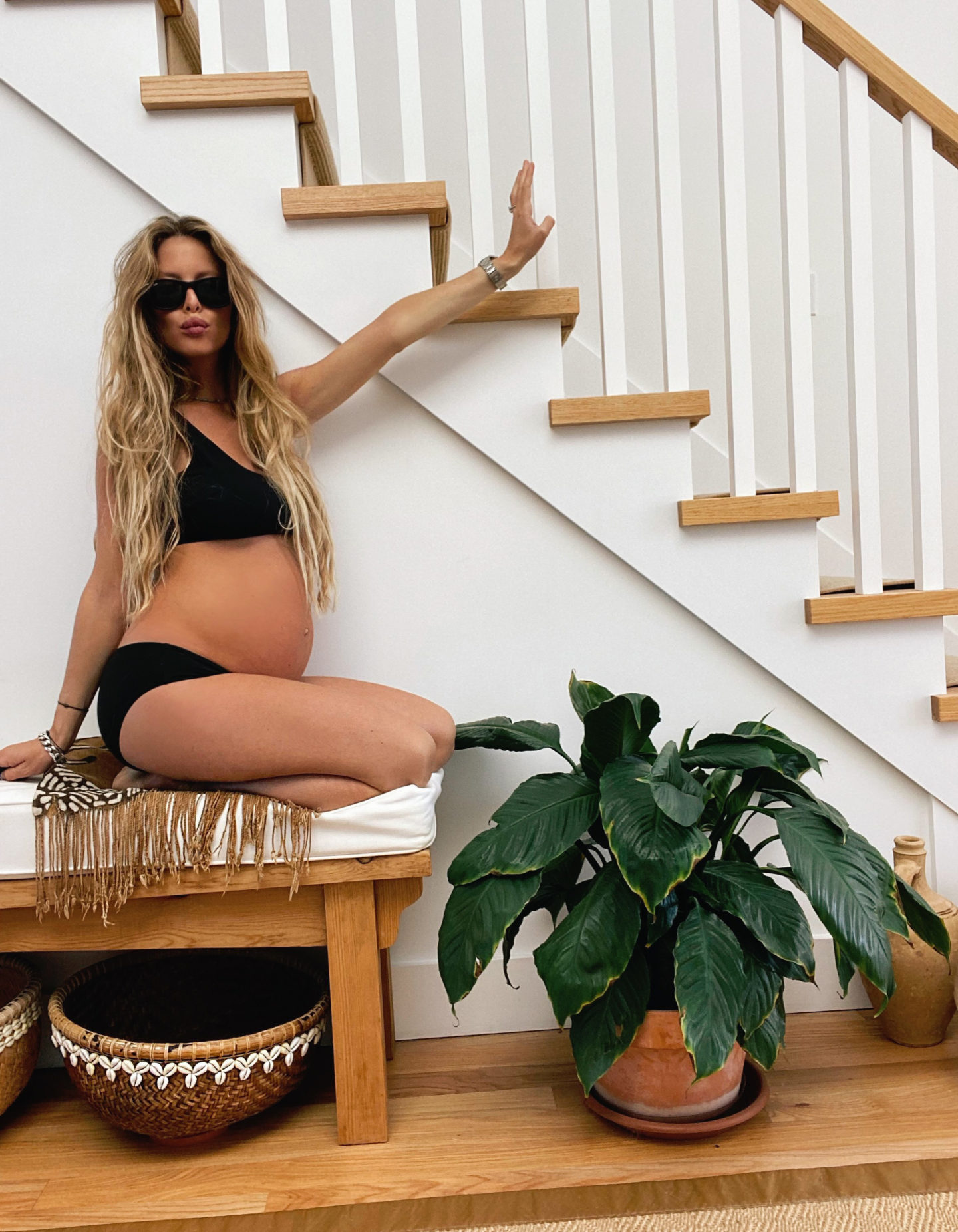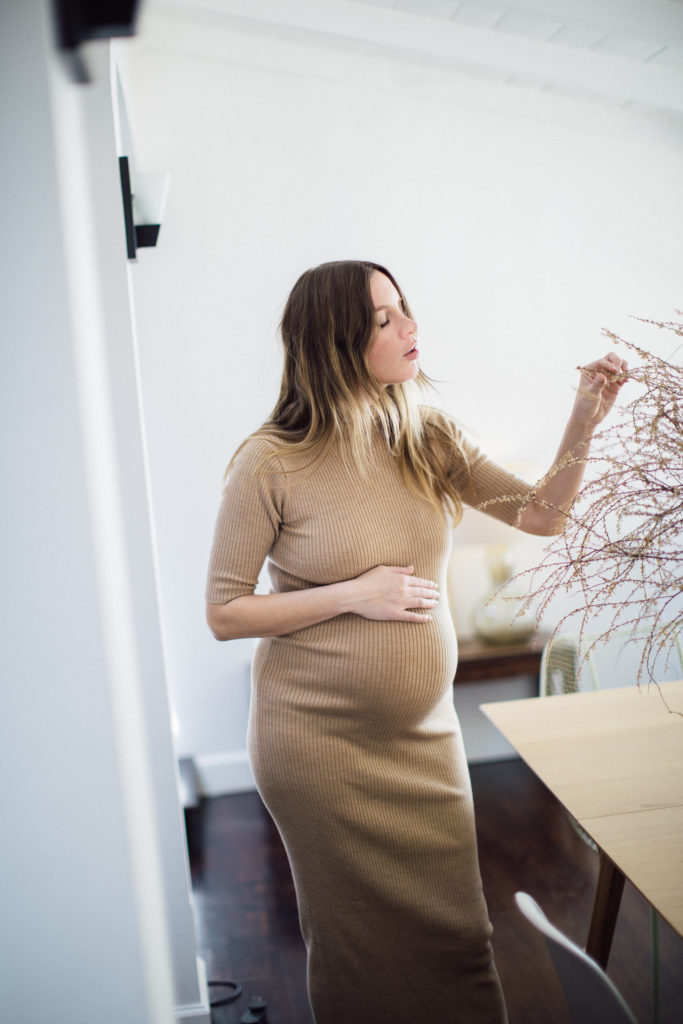
There are few ways to describe Meg without including descriptors like soulful, hilarious, wise, beautiful, authentic, and of course, strong. The first time I met Meg was for a quick drink at 6p, but instead, we closed the restaurant with our friendship sealed. With Meg, the conversation is always real, and you leave the table a better person because of it.
Last June, when I sat across from her at dinner, and she explained having to go in for a very serious 24-week scan the following day, I was worried about her. Then, when she texted the next day to explain she may lose the baby, I was gutted. Over the next three months, I watched Meg, a pillar of strength taking each day anew. Herein she shares her powerful journey of becoming a mother, the solidarity and support she felt from her community, the bliss of motherhood, and how her life and perspective, will forever be altered. @meganalida @dorseyofficial
And so it began…
By the close of my first trimester, I thought I was in the clear.
To preface, I am a health hypochondriac, I worry about myself all the time, and I when I finally hit the 12-week mark I thought I was able to take a deep breath and enjoy my pregnancy. We’d cleared all of the genetic tests plus the blood work, and I’d made it through the horrible morning sickness. All in all, I felt great and was elated to be pregnant as I’d miscarried on June 23rd of last year, a significant date because it was the same day they put termination papers in front of me this year.
Two and a half months in and I’d only put on about three and a half pounds. I’d lost some weight with the morning sickness, but I wasn’t nervous about it as it’s not uncommon. For the entire first trimester, I ate Saltine crackers and drank Ginger Ale—both of which I’ll never have again.
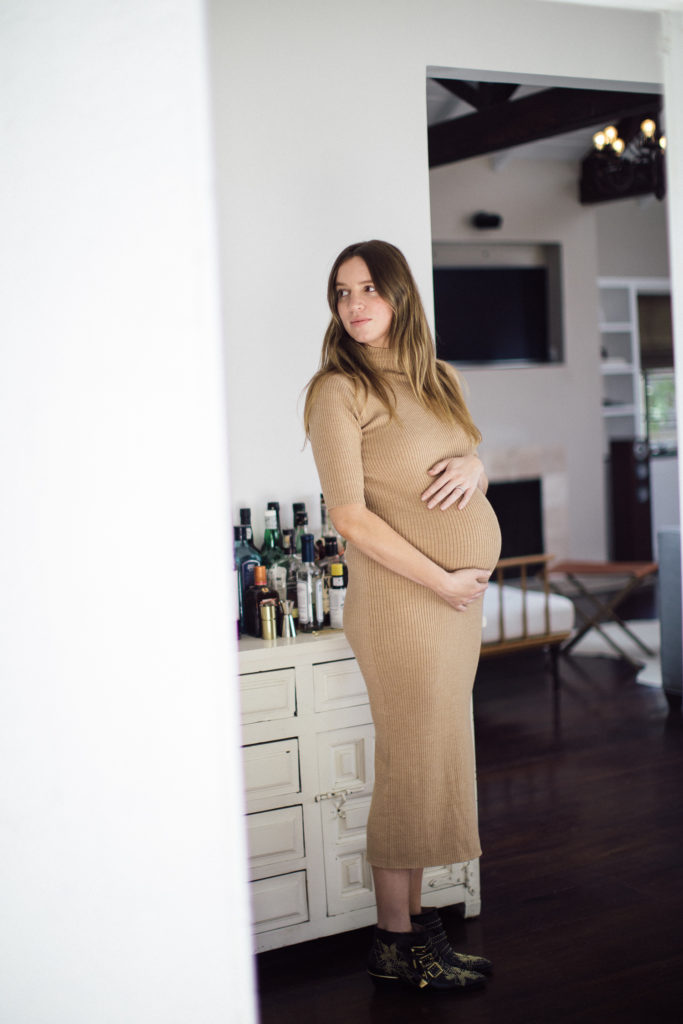
In any case, as the pregnancy progressed past 12 weeks, I was going to work every day and getting back to my typical eating habits, with no particular cravings. Overall life was good. When it came time for the 20-week scan, we started the day at my OBGYN’s office at 12p, wherein she said to me: “Enjoy your second trimester, I know you worry, but everything is fine.” Then we headed to the high-risk specialist at 2:30p for the anatomy scan. At the close of the appointment, they said everything looked great, and to come back for the 30-week scan.
About an hour later, we got a call. The doctor reassessed all of our measurements and determined that she was measuring small for her gestational age. The woman on the phone said we would need come back in four weeks to review whether she’s had a growth spurt. I hung up the phone shaking and immediately started googling. As expected, I found a mix of devastating as well as uplifting stories. Worse case scenario was a blood infection or some abnormality, and the best case was that my baby was merely small. At that point, it seemed as if it could be anything, so for the next four weeks, I tried to take it easy, eat more calories, and do my best to put it out of my mind.
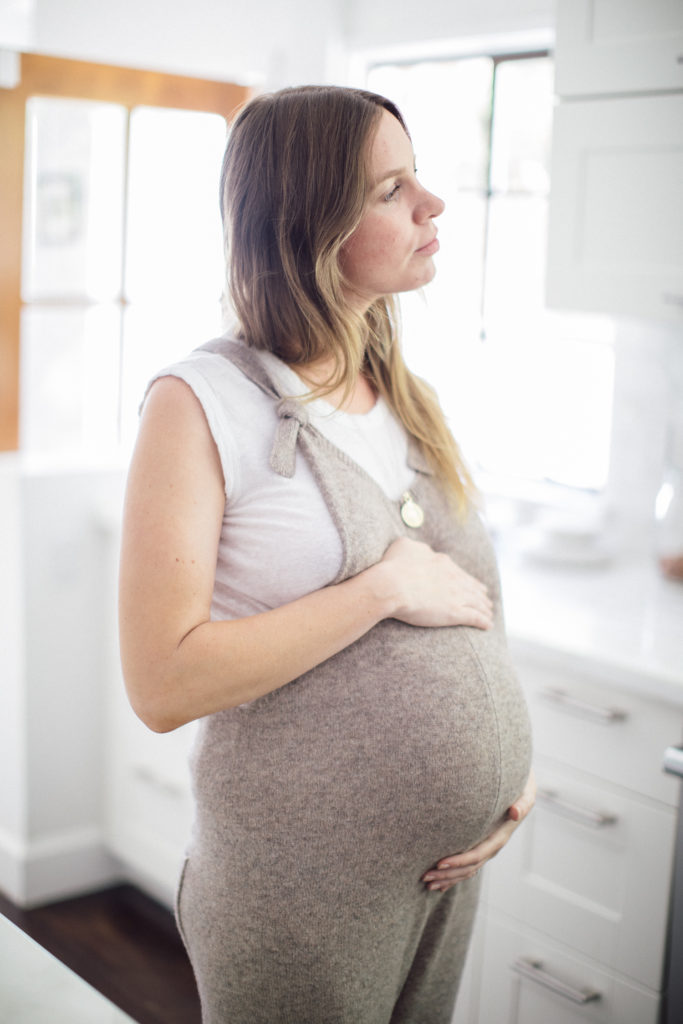
Finally, we made it to 24 weeks and went back in to get measured, only to find out that she’d dropped from the 20th to the 2nd percentile. They declared she had Intrauterine Growth Restriction (IUGR), a rare condition, which meant she wasn’t growing. They continued to explain that it was either a chromosomal abnormality (not typically detected in the first 12 weeks of tests) which can only be discovered when the baby comes out. Or, a blood infection that would destroy the baby’s nervous system, with nothing that could be done to save the baby so we’d be forced to terminate—the only way we would have aborted. At this point, they needed to test me for at least six blood infections, of which I could be A-systematic, but if any of them came back positive they would have to terminate.
We refused the termination and pursued the discovery. However, this far into my pregnancy meant that if we had to terminate there were only two doctors in LA that would do it. Apparently the period between when we refused the termination and the discovery phase legally placed me into a grey area as to when you can or can not abort a baby. It was a mess, but my OBGYN was phenomenal and she instructed us to hire a specialist. At our first meeting, she said to my husband and I: “I don’t know how this is going to end, but I’ll tell you that you two are already parents, and you already have a baby, so you have to fight for this. You have to go home, get in bed, eat well, do the tests, and take of yourself. We’re going to do this one step at a time. I’ve had only two patients throughout my entire career that have had to do a late stage termination. I don’t believe you’re going to be the third.”
For the next three weeks, we saw geneticists, fetal heart specialist, high-risk specialists, and tested for every abnormality possible. Still, it seemed the doctors couldn’t tell us what was wrong. It was a nightmare. Time stood still, and I was trying to absorb it all, but it was too big emotionally. At 24 weeks, I looked pregnant, and everyone knew that I was pregnant. I just kept thinking: How am I going to survive this and be normal?
By 27 weeks, as the checks came in negative and they couldn’t figure out what was wrong, the specialist told us (with grave caution) that it was reasonable for us to go forward with the pregnancy.
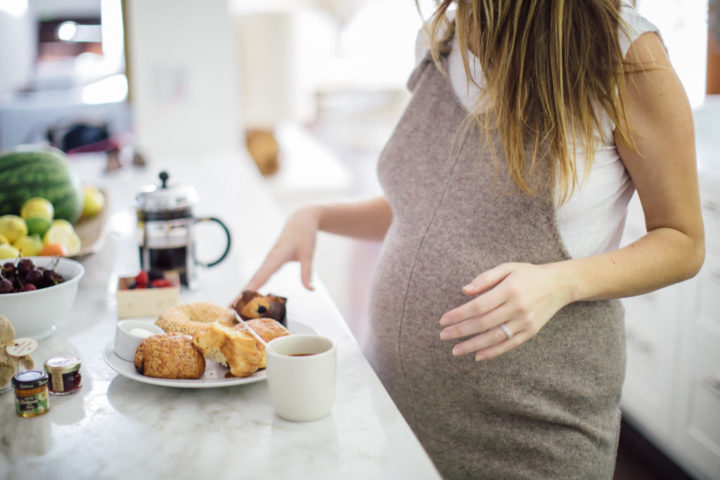
I spent the next three months on bed rest trying to put on weight and seeing how far we’d make it. At one point we were goal-ing for 28 weeks, then 30, then 32, and with each milestone passed, we celebrated a small victory. In late August, as par for the course, I was diagnosed, after much persistence on my part, with a very dangerous blood clot called, Deep Vein Thrombosis (DVT) likely from being on bed rest. Nevertheless, we carried on.
On September 22nd at 8:04 am, after ten highly emotional months, Vivienne was born, perfectly healthy.
There are no words to describe what it felt like to have my healthy baby girl placed on my chest, it was and still is the happiest moment of my life.
How did you emotionally handle so much uncertainty?
I felt more loved through this experience than I ever have before, and I held onto that. It was intense, profoundly humbling, and life-changing. Some days I spent the entire day on conference calls and others I stayed in bed crying. Some days I felt strong and others I was paralyzed by fears. I learned to take things one day at a time.
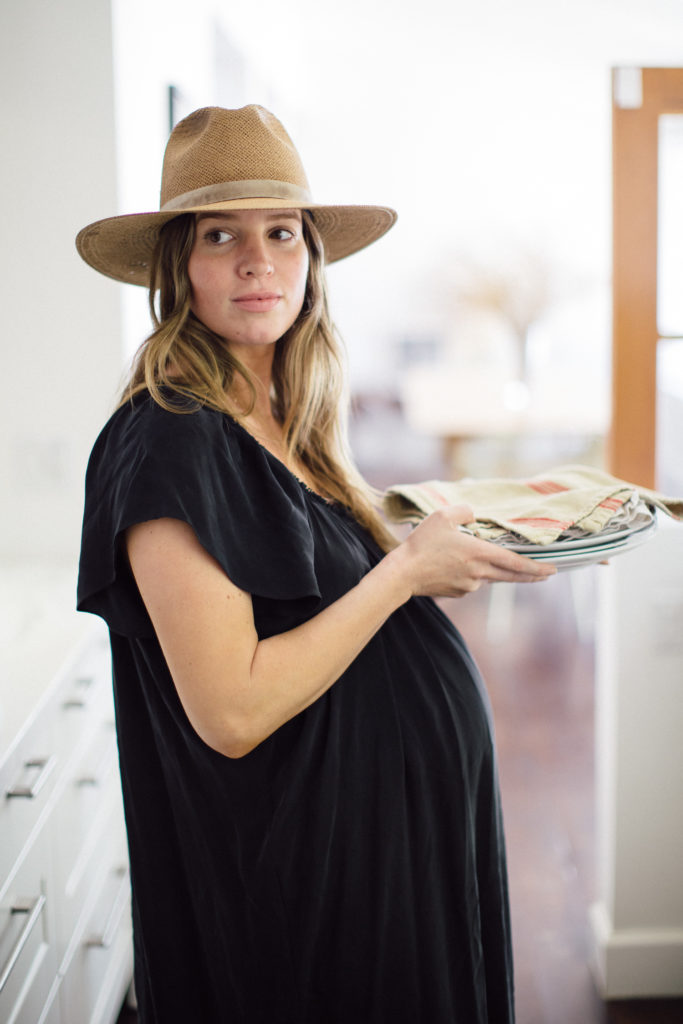
Coming out on the other side; I’m a different person. My relationship with my husband is better as we got through it together. We were in survival mode which makes you realize, nothing matters except being healthy. I used to say obnoxious things like: “I don’t want to put on weight” or “I want a girl or a boy, or I hope she has blue eyes.” However, in the end, I only wanted a healthy baby.
My entire pregnancy everyone said to me: “Omg, you don’t even look pregnant! You look amazing!” When the truth was, I looked “amazing” because I wasn’t putting on weight. Something was wrong, and what’s typically considered a compliment in our society to “look skinny” while pregnant was a deep and scary thing for me. Ironically, before I was pregnant, I used to dream of being that gorgeous, barely affected pregnant girl. Then when I was pregnant and going through something terrible, the very words I’d dreamed of hearing were so awful and intense. Through that lens, I realized how dysfunctional we are as a society to compliment women on looking skinny while they’re trying to grow a human. It was a fascinating way to filter that sort of compliment because, in any other scenario, I would have loved it.
Plus, people were saying how strong I was, but the truth is, I’m not. The only way out was through, and I believe that you do what you have to, to survive. It’s not the cute things about pregnancy that are important when the reality is, things can go wrong. Given that reality, I can’t believe what women are capable of and able to achieve. I’m in awe of women in general.
An unexpected Instagram community?
About six months into my pregnancy I started posting everything I was doing for my pregnancy in my Instagram stories. The doctors’ appointments, waiting rooms, scans for my DVT blood clots, weekly hospital visits, and sweet moments at home enjoying my bump. I was overwhelmed by the response from women who wrote me through DM’s about their pregnancies and complications; they shared words of support and encouragement, and this beautiful community of women I never met stepped in with sound advice. My authenticity was matched by theirs and it made social media a place to connect rather than a place of isolation.
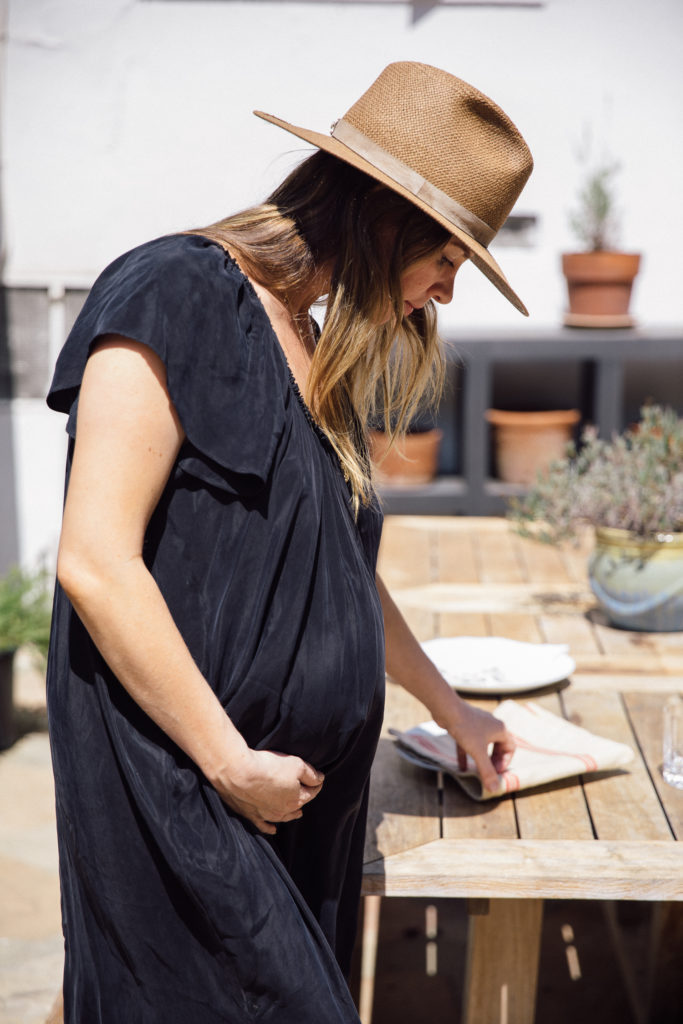
How important is it to have a solid support system?
Your community changes the experience for you. I was in bed for three months, and people would come to hang with me on Friday and Saturday nights with wine (for them) and food—which meant the world to me. I also think your doctor is critical. It was interesting to see how much we were mentally affected by our OB who was encouraging and positive vs. our specialist who was very negative. In the end, it took about 150 people to get us through this whole thing safely. This experience has made me feel massively connected to other humans; it was life-altering.
What does it mean to be an advocate for your health?
When I thought I had a blood clot, the doctors insisted I was wrong. However, when they finally found it and questioned how I knew, I told them I did my research online plus I listened to my body. Recently my doctor reassured me that I’m not a hypochondriac, but instead, I’m an advocate for my health.
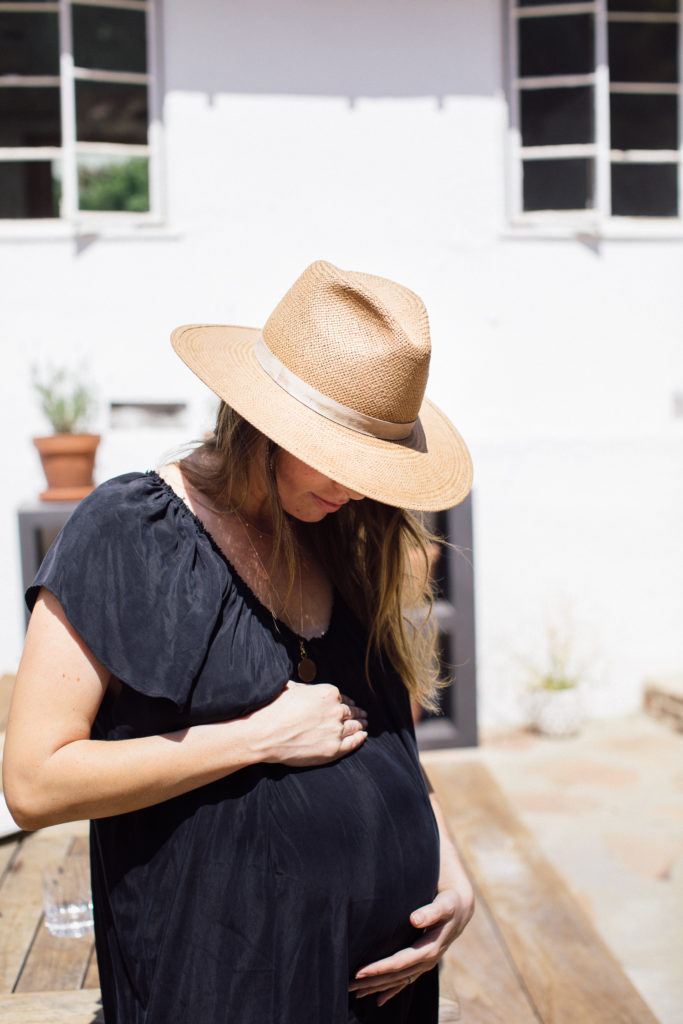
What do you do on bed rest?
I worked throughout my entire pregnancy (up until the last 24 hours), and have never been so productive—it kept me sane. My husband cooked every meal for us for three months and took care of everything in the house. We called him the house Doula. Friends came by and prepared meals for us as well. I was only allowed to sit up for meals and to shower, plus I was allowed two 10 minute walks a day—frankly, I lived in sweats. Overall we felt supported. We felt loved. We found a new normal.
How did you deliver?
I had a scheduled c-section, as delivery on blood thinners with DVT’s is high risk. It took 10 minutes to get the baby out. Just as they told me they were pulling her out, the last two years of trying to have her and everything we’d been through welled up inside me. I have never felt that kind of emotion. I was so proud of myself, for making it through.
How’s mom life?
Absolute bliss—side from the breastfeeding.
